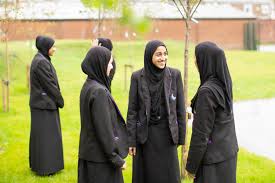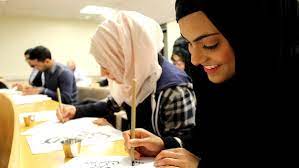Education is a significant driver of development in Muslim communities in the UK and much of this activity is represented online. The Digital British Islam collection on Education seeks to take a snapshot of online educational institutions. The first British Muslim educational initiatives grew out of attempts by the first generation of communities who settled in the U.K and wanted to secure the accommodation of their religious needs within state schools. The pioneers of these efforts were associated with religious revivalist trends that foregrounded the maintenance of religious identity and campaigned to defend Muslim concerns. Their priorities included seeking the provision of halal food in schools, the withdrawal of children from Christian-based assemblies, sex education classes and mixed-gender physical education. The Muslim Education Trust (MET) was at the forefront of these efforts in the 1970s and 1980s. The MET challenged aspects of the national curriculum, how it impacted the faith identity of Muslim children, produced a number of policy papers and provided resources for teachers in after-school supplementary Islamic studies classes held in mosques1.

Until recently, the educational attainment levels of Muslim students at GCSE and A Level, (particularly those of Pakistani and Bangladeshis ancestry) in British state schools, was lower than other ethnic groups, and explained in terms of socio-economic disadvantage and racism.2 These dynamics and concerns for the maintenance of Islamic identity, led to the growth of privately funded Islamic schools in the 1990s and the setting up of networks such as the Association of Muslim Schools. Many Muslim faith schools today have been at the top of the British government’s ranking of secondary school performance and continue to excel in schools league tables 3
In addition to Muslim faith-based schools, over the last twenty years there has been a steady increase in Islamic colleges and centres of Higher Education, offering advanced level Islamic studies. Some of these institutions also offer secular subjects alongside their programmes of learning. Among the first to do this was the Muslim College in London and over the last twenty years, a number of these educational initiatives now offer specialist undergraduate and postgraduate courses, such as Markfield Institute of Higher Education in Leicester, the Birmingham based Al-Mahdi Institute, Cambridge Muslim College and Ebrahim College in East London.

Some are explicitly interested in providing intensive Arabic and Islamic studies to those who cannot study the subjects in Muslim majority societies, while others are hybrid institutions that train traditionally educated Muslim scholars and attempt to achieve academic excellence by having their courses accredited by secular British universities. Most offer distance-learning routes that utilise asynchronous learning and live classes in addition to attendance-based routes. Most of these educational institutions have active websites where their various programmes can be explored. The Digital British Islam archive seeks to capture their activities within this collection.
1 Sadek Hamid, Sufis, Salafis and Islamists: The Contested Ground of British Islamic Activism. I.B. Tauris, 2017.
2 See for example, Shamim Miah, Muslims Schooling and the Question of Self-Segregation, Palgrave-Macmillian, 2015,
3 Muslim faith schools lead the pack in UK top schools list (trtworld.com)
